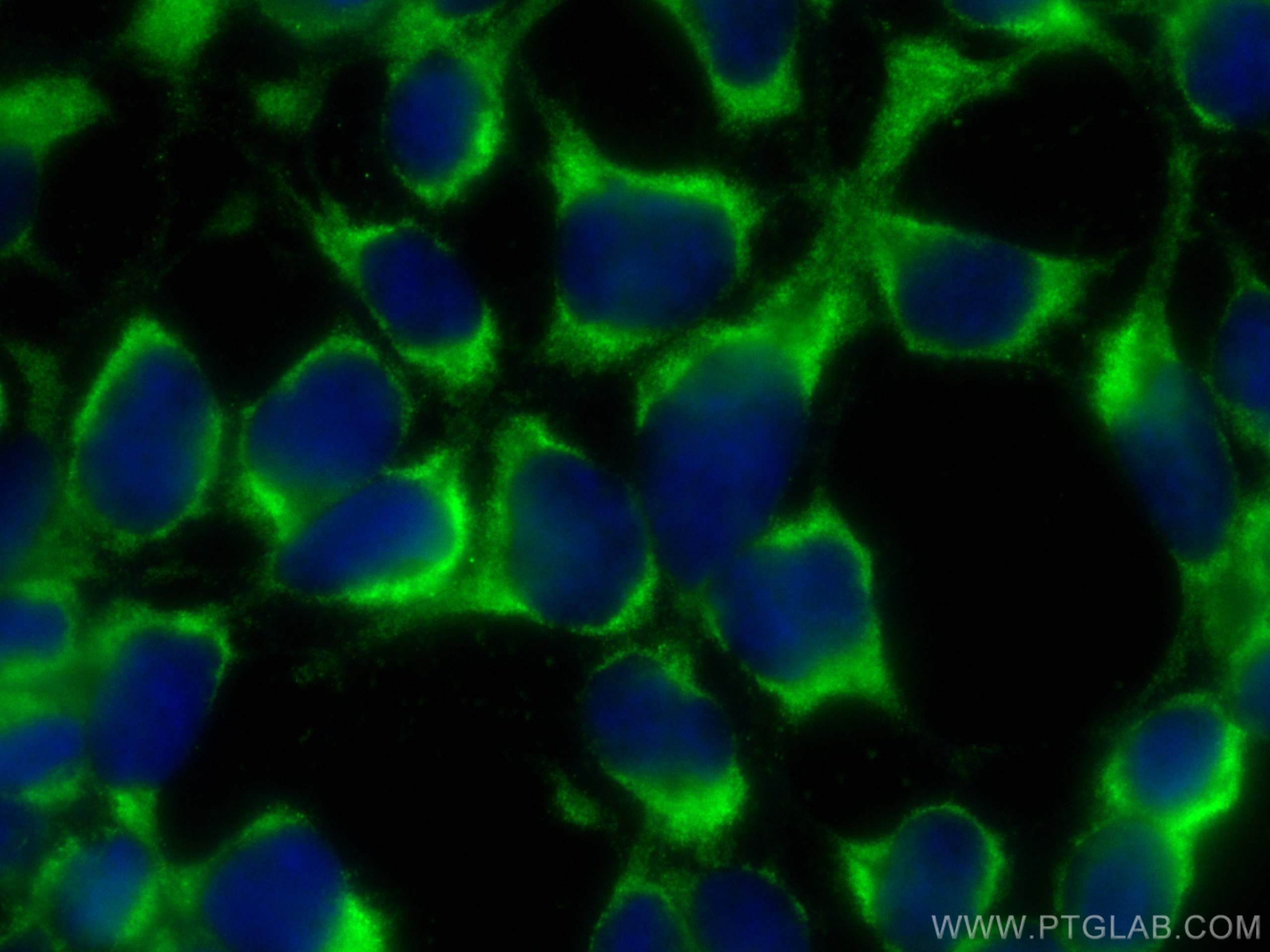PAK6 Monoklonaler Antikörper
PAK6 Monoklonal Antikörper für IF
Wirt / Isotyp
Maus / IgG1
Getestete Reaktivität
human
Anwendung
IF
Konjugation
CoraLite® Plus 488 Fluorescent Dye
CloneNo.
3G8C1
Kat-Nr. : CL488-67562
Synonyme
Galerie der Validierungsdaten
Geprüfte Anwendungen
| Erfolgreiche Detektion in IF | HEK-293-Zellen |
Empfohlene Verdünnung
| Anwendung | Verdünnung |
|---|---|
| Immunfluoreszenz (IF) | IF : 1:50-1:500 |
| It is recommended that this reagent should be titrated in each testing system to obtain optimal results. | |
| Sample-dependent, check data in validation data gallery | |
Produktinformation
CL488-67562 bindet in IF PAK6 und zeigt Reaktivität mit human
| Getestete Reaktivität | human |
| Wirt / Isotyp | Maus / IgG1 |
| Klonalität | Monoklonal |
| Typ | Antikörper |
| Immunogen | PAK6 fusion protein Ag27692 |
| Vollständiger Name | p21 protein (Cdc42/Rac)-activated kinase 6 |
| Berechnetes Molekulargewicht | 681 aa, 75 kDa |
| Beobachtetes Molekulargewicht | 70-75 kDa |
| GenBank-Zugangsnummer | BC035596 |
| Gene symbol | PAK6 |
| Gene ID (NCBI) | 56924 |
| Konjugation | CoraLite® Plus 488 Fluorescent Dye |
| Excitation/Emission maxima wavelengths | 493 nm / 522 nm |
| Form | Liquid |
| Reinigungsmethode | Protein-G-Reinigung |
| Lagerungspuffer | BS mit 50% Glyzerin, 0,05% Proclin300, 0,5% BSA, pH 7,3. |
| Lagerungsbedingungen | Bei -20°C lagern. Vor Licht schützen. Nach dem Versand ein Jahr stabil. Aliquotieren ist bei -20oC Lagerung nicht notwendig. 20ul Größen enthalten 0,1% BSA. |
Hintergrundinformationen
PAK6(p21-activated kinase 6) is a serine/threonine kinase belonging to the p21-activated kinase (PAK) family. .This protein plays a role in the regulation of gene transcription and may protect cells from apoptosis through phosphorylation of BAD. Northern blot analysis revealed that PAK6 is highly expressed in testis and prostate tissues (PMID:11278661).
Protokolle
| Produktspezifische Protokolle | |
|---|---|
| IF protocol for CL Plus 488 PAK6 antibody CL488-67562 | Protokoll herunterladen |
| Standard-Protokolle | |
|---|---|
| Klicken Sie hier, um unsere Standardprotokolle anzuzeigen |


